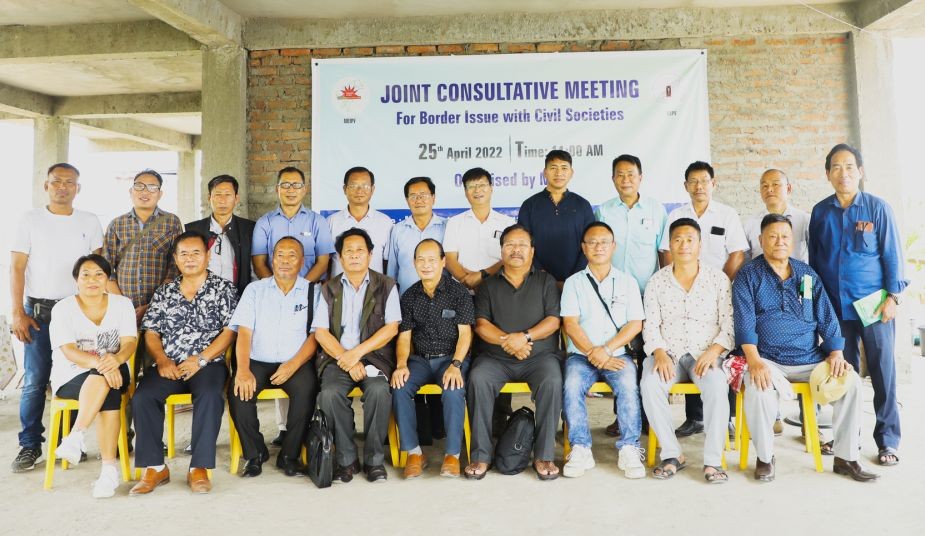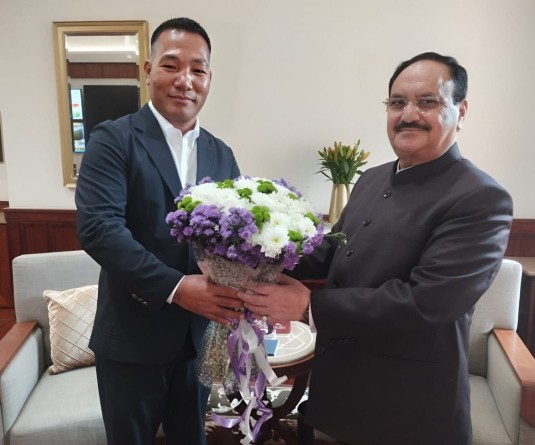Participants of the consultative meeting called by the Nagaland Indigenous People's Forum (NIPF) in Dimapur on April 25. (Morung Photo)

NEIPF General Conference in Dimapur on April 29 & 30
Morung Express News
Dimapur | April 25
An environment that is conducive for ‘free and frank’ dialogue among the indigenous people of the north eastern states must be created in order to resolve the intricate interstate border issues in the region. This was underscored during a consultative meeting called by the Nagaland Indigenous People's Forum (NIPF) in Dimapur on Monday.
Delving into the complex interstate boundary issues of the north eastern states, particularly in the context of Nagaland, the participants also emphasised on the need for a stronger political will, especially in terms of implementing existing agreements with regard to border issues. While the CSOs and pressure groups can bring up the issues and create dialogue, they maintained that actionable measures can only be taken at the government level, for which political will is prerequisite.
The consultation was held with representatives from various civil society organisations including the Nagaland Tribes Council (NTC), Central Nagaland Tribes Council (CNTC), Eastern Nagaland People's Organisation (ENPO), Nagaland Zeliang Public Organisation, and the Nagaland GB Federation, among others.
After a threadbare discussion, the consultative meeting unanimously resolved and endorsed for the creation of a conducive atmosphere among the indigenous people of the north eastern states, so that free and frank discussions towards resolving all the border issues can be taken up.
Developing people to people relationships
Meanwhile, NIPF President Dr Temsuwati Lkr informed that the North East Indigenous People’s Forum (NEIPF), of which it is a member, is organising its 2nd General Conference on April 29 and 30 at the NEZCC Stone Park in Dimapur.
Stating that delegates from all the north eastern states would be attending the event, Dr Temsuwati maintained that the consultative meeting was held to discuss the pressing border issues of the state, which would then be presented during the conference.
He noted that several disputes are sub judice as the matters are still being heard in the courts; however, the forum seeks to find a common ground among the people through dialogue, and by extension, resolve differences not limited to interstate boundary disputes.
In this context, Dr Temsuwati said, “The consensus among all the representatives (to the consultative meeting) is to develop and establish people to people relationships to address any issue of the region.”




